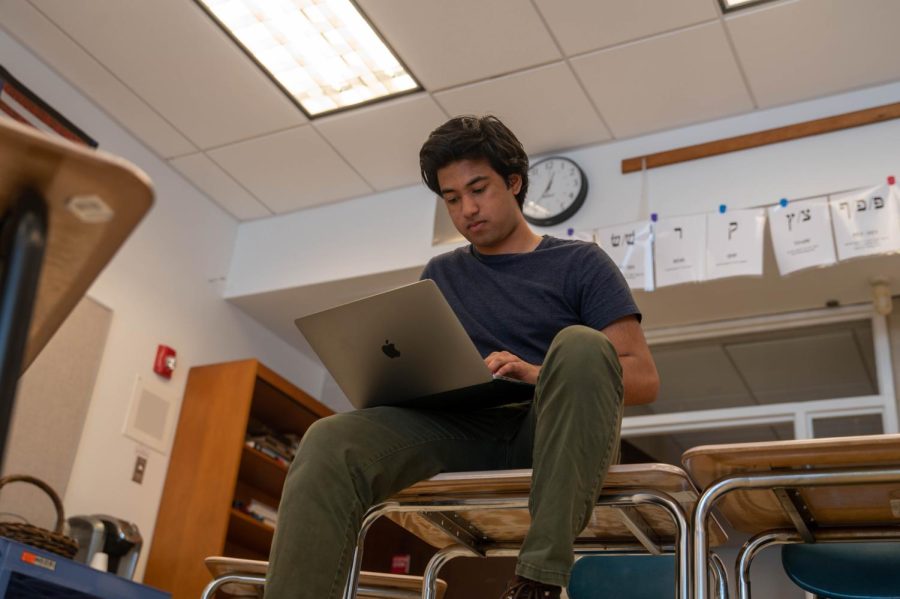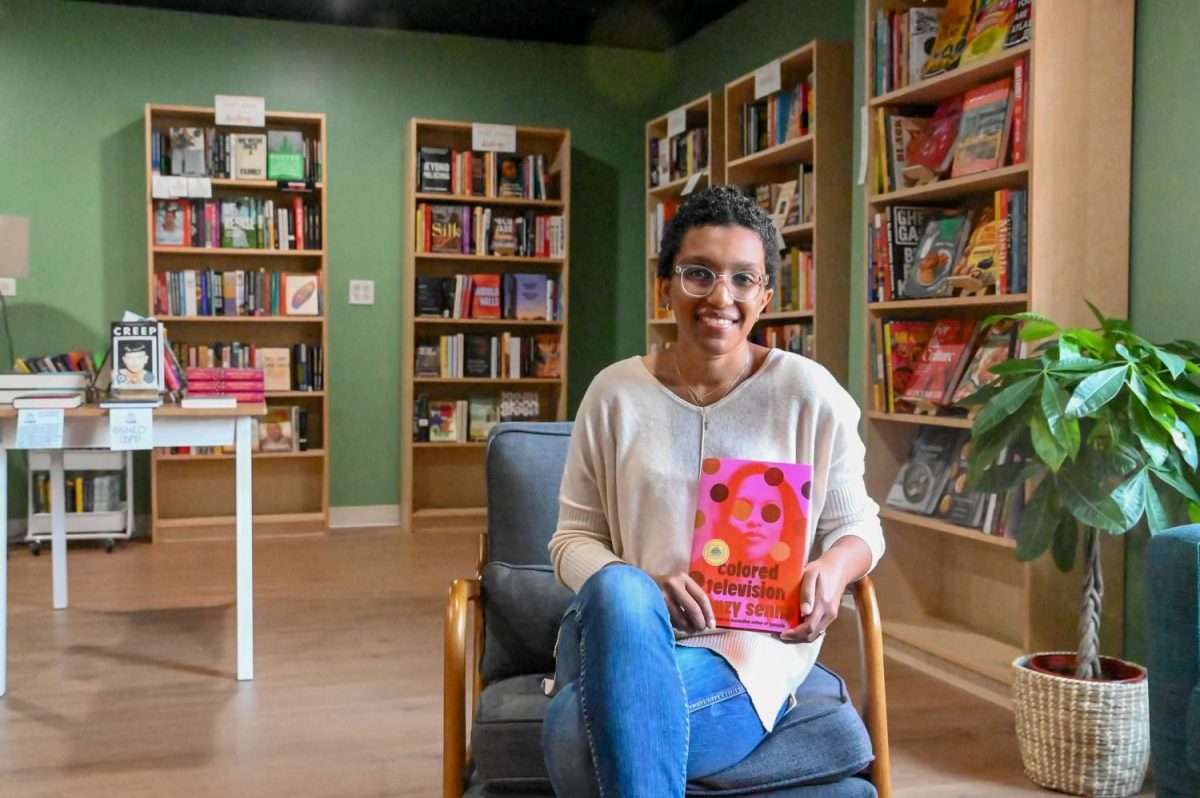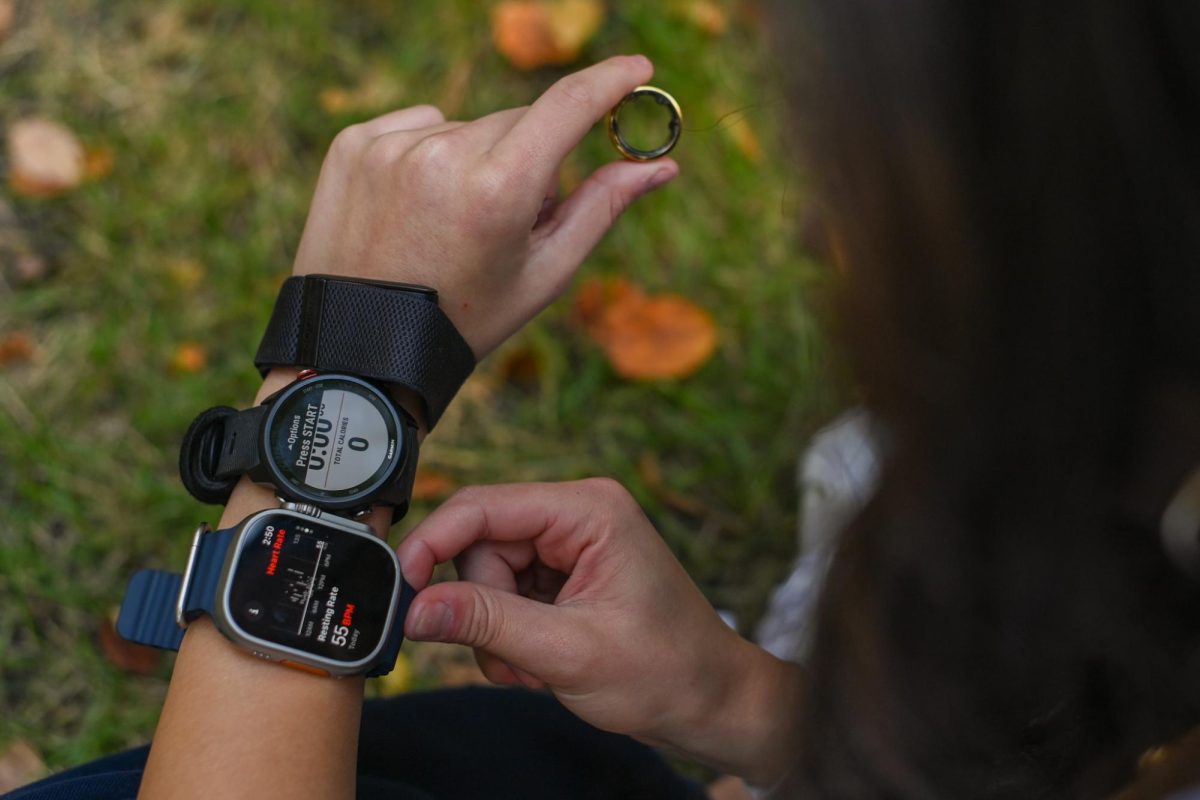Muslim student athletes navigate fasting during Ramadan while maintaining physical endurance
FASTING MONTH. Instead of eating during lunch, senior Yaseen Qureshi works on his computer at Muslim Students’ Association on April 14 in C121. Since March 22, students observing Ramadan have been fasting from dawn until dusk which has caused difficulties for student athletes. “I definitely make sure that I have enough to eat in the morning to be able to go through practice,” Yaseen said.
April 27, 2023
In the sunlit hours after school, the U-High tennis courts are packed with boys practicing for the tennis team. Bouncing tennis balls, vibrating racquet strings and squeaking shoes can be heard until 5:30 p.m.
Winded, the players are called in for a water break. They leave their courts and sit down on the bleachers to hydrate and catch their breath. But players like senior Yaseen Qureshi, who are celebrating the Muslim practice of fasting for Ramadan, cannot hydrate.
Many U-High students observing the month of Ramadan faced this additional struggle of maintaining physical endurance when playing for their sports team.
The last time Yaseen ate and drank was nearly 12 hours ago, and he is thoroughly exhausted from two hours of tennis. In solidarity, his teammates kindly decide to skip their water break and stay on the court with him.
“It’s a completely unnecessary gesture, but I still found it kind of moving,” Yaseen said. “It was a very nice thing for them to do.”
Along with teammates, coaches are also very considerate about the limits some of their players face during the month of Ramadan and allow them to take breaks when needed.
“I think they understand that tennis is a big part of our lives, but it’s not the main one,” Yaseen said.
Dawuad Talib, varsity tennis coach, recognizes the struggles these players face and supports them.
“We talk about self-fixing, self-understanding and making sure that we are paying attention to our bodies, to how we feel,” Mr. Talib said. “Because there is no wrong in not being 100%, as long as we are being honest with that and making sure we are not putting ourselves in harm’s way.”
While Yaseen does fast during practice, he does not fast during matches.
“Matches are very serious, and I think I kind of owe it to the team to give them, like, the best version of myself possible,” Yaseen said. “And that just really means staying fit and hydrated during the day.”
Ninth grader Alishba Shah, a player for the girls soccer team, also fasts during practice but not games.
“For games I normally don’t fast because I feel like I won’t be able to play to the fullest,” Alishba said.
Lab’s annual EID dinner on April 28 will celebrate the end of Ramadan, but until then, both Alishba and Yaseen feel it is especially important to take care of their bodies when fasting.
“Fasting isn’t just about how many days you can do in a row, it’s just about trying to be the best person you can be during the month,” Yaseen said.
Prioritizing fasting over physical activity can sometimes accomplish this.
Yaseen said, “If that means occasionally you have to take a break, that’s fine.”












